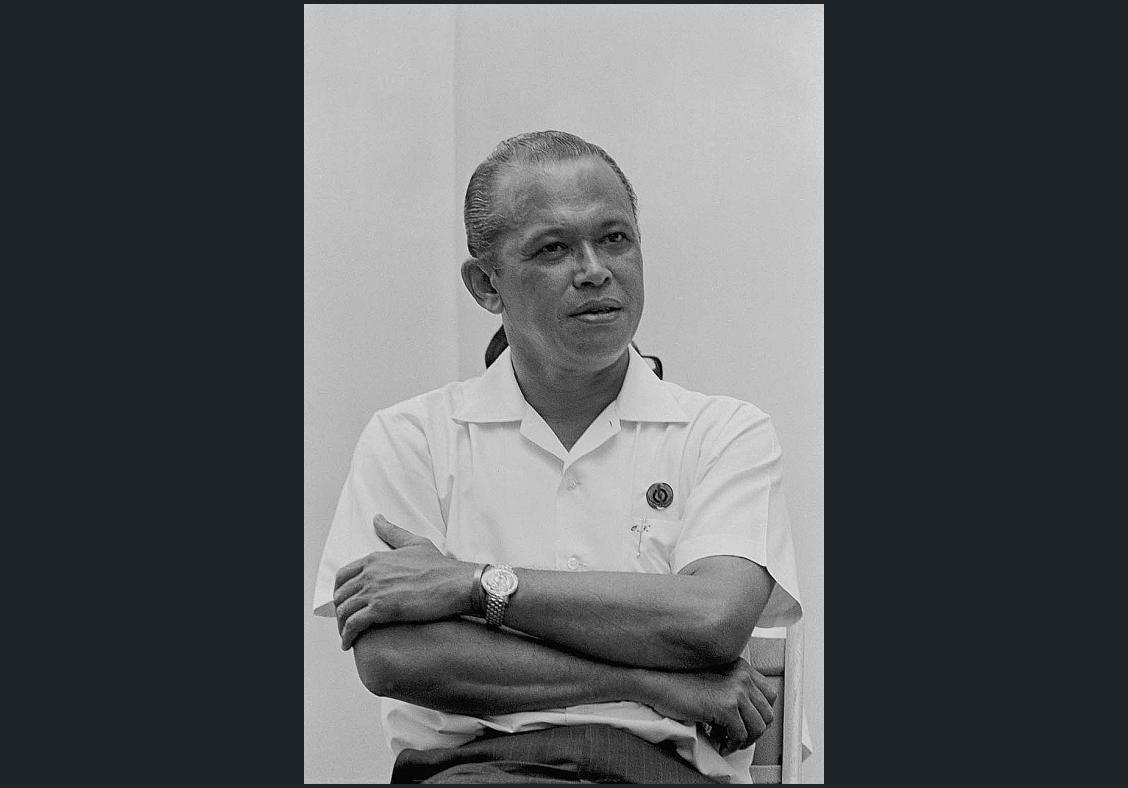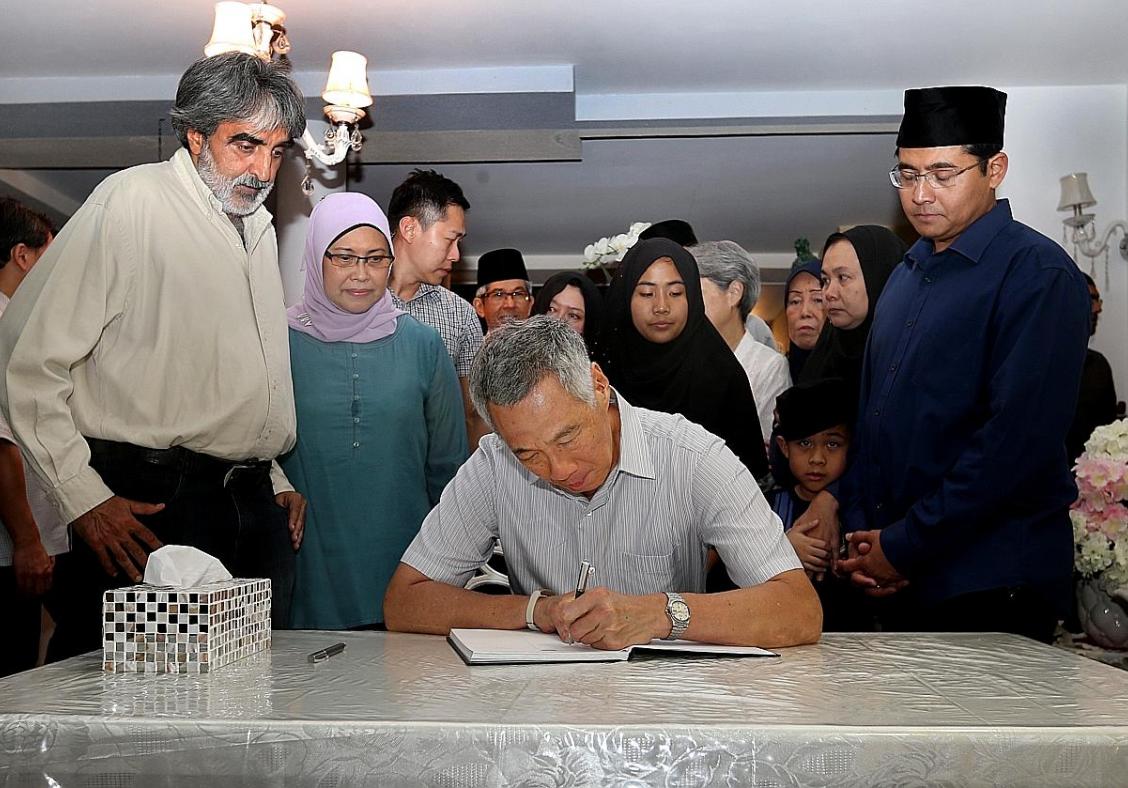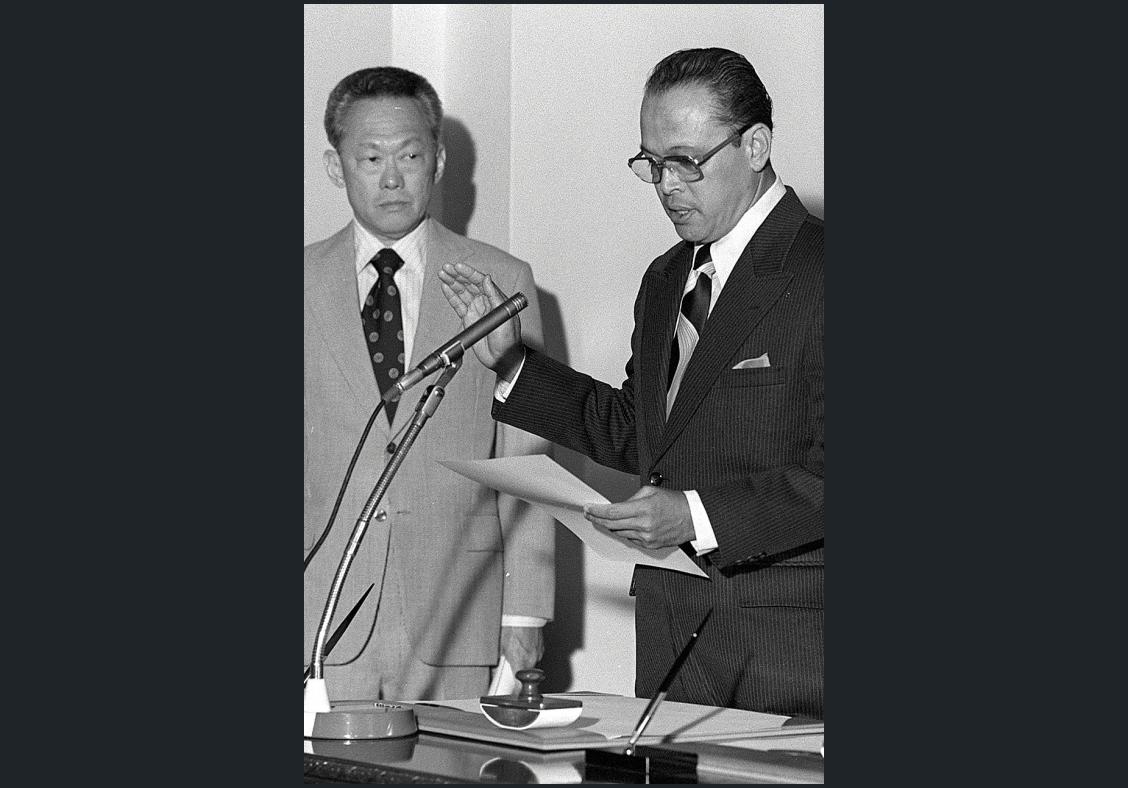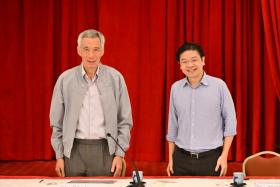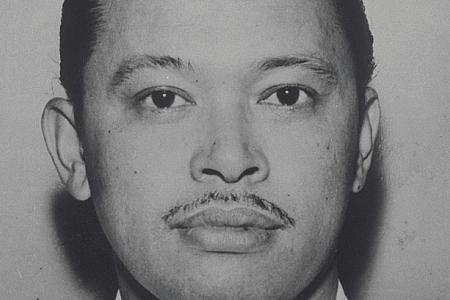Mr Othman Wok - 'He made a multiracial Singapore possible'
President Tony Tan, PM Lee, DPM Tharman among those paying tribute to Othman Wok
Mr Othman Wok, a member of independent Singapore's first Cabinet, died yesterday at the age of 92.
According to the Prime Minister's Office (PMO), Mr Othman died at the Singapore General Hospital at 12.21pm. He had been ill for some time.
He leaves his wife, four daughters, seven grandchildren, two great-grandsons, a step daughter and three step-grandchildren.
One of his daughters, Miss Diana Othman, 36, told The New Paper that her father had suffered several health complications, including pneumonia, due to his age.
"But my father did not suffer and passed on peacefully.
"He left this world as gracefully as the way he lived his life throughout," she said.
Mr Othman will be buried at Choa Chu Kang Muslim Cemetery today.
HALF-MAST
A ceremonial gun carriage will bear his body from the Sultan Mosque to the Pusara Aman cemetery, said the PMO.
The State flag on all government buildings will be flown at half-mast until the completion of the memorial service, which will be organised by OnePeople.sg tomorrow.
Mr Othman served as an MP for the Pasir Panjang constituency from 1963 to 1981.
He was Minister of Social Affairs, and he served as Singapore's ambassador to Indonesia as well.
He was a strong believer in multi-racialism. On its Facebook page, the People's Action Party said Mr Othman was "one of the earliest proponents of multi-racialism in Singapore".
Mr Othman will be remembered for his work for the Malay community and his contributions in social welfare and sports development.
The PMO hailed Mr Othman, who was one of the signatories of the Separation Agreement, as a "founding father of Singapore".
"He was a key member of Mr Lee Kuan Yew's Cabinet, during the critical period when Singapore was in Malaysia, and then separated from Malaysia to become an independent republic.
"He supported Mr Lee in the fight for a multiracial and multi-religious Singapore, and became one of Mr Lee's closest comrades," it said.
"The Prime Minister and his Cabinet colleagues are sad to learn of the passing of (Mr Othman) and wish to convey their deepest condolences to his family."
President Tony Tan Keng Yam visited the family yesterday afternoon, speaking with Mr Othman's family members and writing a condolence message.
In a Facebook post, Dr Tan said he and his wife are "deeply saddened" by Mr Othman's passing.
Deputy Prime Minister Tharman Shanmugaratnam said in a Facebook tribute: "We are indebted to (Mr Othman), and will always be. He made a multiracial Singapore possible, which matters more than anything else we have."
The Islamic Religious Council of Singapore (Muis) said in a statement that with Mr Othman's passing, the community has "lost a strong leader who sought tirelessly to uplift the Community".
Muis highlighted how Mr Othman had a hand in developing the Administration of Muslim Law Act (Amla), calling it his "greatest legacy".
It was the Amla that made the establishment of the Muis, Syariah Court and Registry of Muslim Marriages possible.
The public can pay their respects at Mr Othman's house at 46, Kew Avenue, until 10.30am today.
Highlighting her father's humble nature, Miss Diana said: "He did so much for our country and for my family, but to him, it was never meant to be a big deal. He thought of it as his job, and he did it the best he could.
"That humility is one of his most admirable qualities - he was always such a graceful man."
Timeline of Mr Othman's contributions to Singapore
1924 Born in Singapore.
1946 Joins Malay-language newspaper, Utusan Melayu, as a clerk. A week later, one of the paper's founders, Mr Yusof Ishak (who later becomes Singapore's first president), offers him a position as reporter. Also dabbles in writing fiction and publishes several horror books.
1948 Posted to Kuala Lumpur to assist in the paper's operations there.
1950 Selected to take up a diploma in journalism in London on a Colonial Development Scholarship.
1951 Returns to Malaya and is promoted to chief reporter of Utusan, a post that brings him back to Singapore. Elected secretary of the Singapore Printing Employees' Union.
1953 Represents Malaya Publishing House workers in their demand for higher wages.
1954 Joins People's Action Party (PAP) days after its formation, as part of the Malay Affairs Bureau.
1959 Invited to be chairman of Changi Geylang PAP branch. Fielded as the PAP candidate in the Malay-majority United Malays National Organisation-controlled Kampong Kembangan ward.
1963 Becomes Singapore's first Minister for Social Affairs, the only Malay Cabinet member then. Wins the Pasir Panjang seat by fewer than 1,000 votes, remaining as the constituency's Member of Parliament until 1981. 1965 One of 10 leaders who sign the Independence of Singapore Agreement on Aug 9,
1965. Later takes over the culture portfolio from Mr S. Rajaratnam and becomes Minister for Culture and Social Affairs when the two ministries merge.
1966 Sets up a sports department within the Culture and Social Affairs Ministry and sees to the construction of the National Stadium. The stadium officially opens in 1973. Also involved in the implementation of the Administration of Muslim Law Act, which addresses the functions and jurisdiction of key Muslim institutions in Singapore.
1971 Chairs the National Sports Promotion Board, which is set up to streamline the administration of national sports programmes and champion a Sports for All programme.
1975 Helps implement the Mosque Building Fund, to which working Muslims contribute each month via their Central Provident Fund accounts to help build mosques in new towns.
1977 Relinquishes social affairs portfolio but continues as Minister without Portfolio and is appointed ambassador to Indonesia.
1981 Retires from politics.
1990 Awarded the Order of Nila Utama (2nd Class), one of Singapore's highest national honours
Get The New Paper on your phone with the free TNP app. Download from the Apple App Store or Google Play Store now

